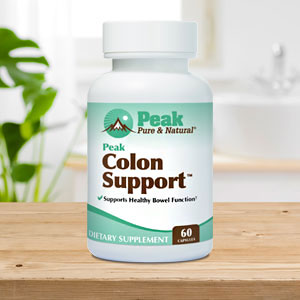Get Easy Health Digest™ in your inbox and don’t miss a thing when you subscribe today. Plus, get the free bonus report, Mother Nature’s Tips, Tricks and Remedies for Cholesterol, Blood Pressure & Blood Sugar as my way of saying welcome to the community!
Nexletol for cholesterol: Blockbuster or just bust

I don’t know about you — and maybe it’s because Google has figured out what I’m interested in learning about — but I can’t seem to get away from stories about bempedoic acid, otherwise known as Nexletol®.
Bempedoic acid is a relatively new drug that lowers cholesterol. It’s taken once daily in pill form and works through the same enzymatic pathways in the liver as statins do.
But because it affects a different part of the pathway as compared to statins, it does not share the same side effect profile. It has been touted as a great alternative for patients who need to lower cholesterol but can’t tolerate statin drugs.
But is it?
Bempedoic acid was all over the news recently because a new study showed that in 4,200 patients with high cholesterol that had not yet been diagnosed with heart disease, bempedoic acid reduced rates of heart attack and death from heart disease by 39 percent and all causes of death by 27 percent.
Those are BIG effects. Blockbuster level.
The superlatives from the trial investigators came pouring out. “Frankly startling” and “a wakeup call” regarding the need to put many more people on cholesterol-lowering medications — especially bempedoic acid.
Not much was spoken about the fact that bempedoic acid can cause gout, gallstone attacks and tendon ruptures — admittedly rare but highly unpleasant side effects that are not all necessarily reversible (a ruptured tendon is a ruptured tendon).
The other thing that was left out of the story was that these 4,200 people were plucked out for analysis out of another, already published trial designed to look at something else.
And this is where everything gets messy
And a little complicated — but stick with me…
The original, larger trial was designed to see if patients with high cholesterol who can’t tolerate statins would see an overall outcome benefit by going on bempedoic acid instead.
And the answer was yes – looking at everyone enrolled, 14,000 people in all, bempedoic acid reduced the combined chance of someone experiencing a heart attack or stroke or needing bypass surgery/stent or dying of heart disease by about 13 percent.
Not blockbuster level for a drug, but meaningful for sure. And that’s where the analysis should have ended. But it didn’t.
Let the mess begin…
The original trial included mostly people who had already developed heart disease. Mixed in there were also the 4,200 who hadn’t yet.
And if you know anything about statistics and event risks, right about now your skepticism about that “frankly startling” result in the subset of 4,200 patients should be rising.
As a proven fact, people with established heart disease are at MUCH higher risk of experiencing a heart event during follow-up than those that only have high cholesterol. This means that ANY intervention that reduces event rates would be expected to have an outsize effect in people starting at a higher risk of experiencing those events to begin with.
So why would a lower-risk population of 4,200 people have better results with bempedoic acid than the overall group they came from that included many more people at higher average risk?
Seems odd, right?
Part of that answer lies in the fact that the investigators chose different outcomes to study in this smaller group. The big trial was designed to look at a composite of four endpoints. When the investigators looked at the smaller subset they decided to look at only two of the original four — heart attacks and death due to heart disease alone — while ignoring stroke and bypass surgery/stent.
Would the result be as dramatic if the other two components had also been included? We will never know.
Another part of the answer lies in the act of cutting up the study population into subsets after the fact. Weird things can happen when you do that — including chance events.
One famous published example of the perils of post-hoc subset analysis involved aspirin. In the main trial of nearly 18,000 people the benefit of using aspirin after a heart attack was huge and clear. But when you broke down the studied population into astrological signs, everyone benefited except Geminis and Libras.
As a Libra myself, I know that’s a chance finding. So was the outsize prevention effect of bempedoic acid in the 4,200 subset a chance finding? That is absolutely possible.
Finally, we can’t forget motivation. Every drug company wants to create a blockbuster. And every investigator wants to be famous for their work. Finding ways to slice and dice data such that you come up with an eye-popping result (even if it could be a chance finding) is one way to get there.
For my part, I’m not blown away by the results of this trial — because I can see the flaws. Frankly, I’m mostly dispirited by the whole thing. This is potentially more spin than truth and that’s not how we should be conducting ourselves if we are scientists in the business of truly helping people.
Plus, as mentioned above, bempedoic acid is not side-effect free. And it’s certainly not cheap.
At around $400/month it comes in at a price tag that can only be justified in very select patients.
Lest we forget, $400/month buys a lot of beautiful, delicious, health-promoting food (Step One is just one humble example). Food that can help prevent gout attacks, support strong bones and tendons and lower cholesterol too. All the while reducing the risk of heart disease, stroke, and dying from any cause.
Editor’s note: Did you know that when you take your body from acid to alkaline you can boost your energy, lose weight, soothe digestion, avoid illness and achieve wellness? Click here to discover The Alkaline Secret to Ultimate Vitality and revive your life today!














